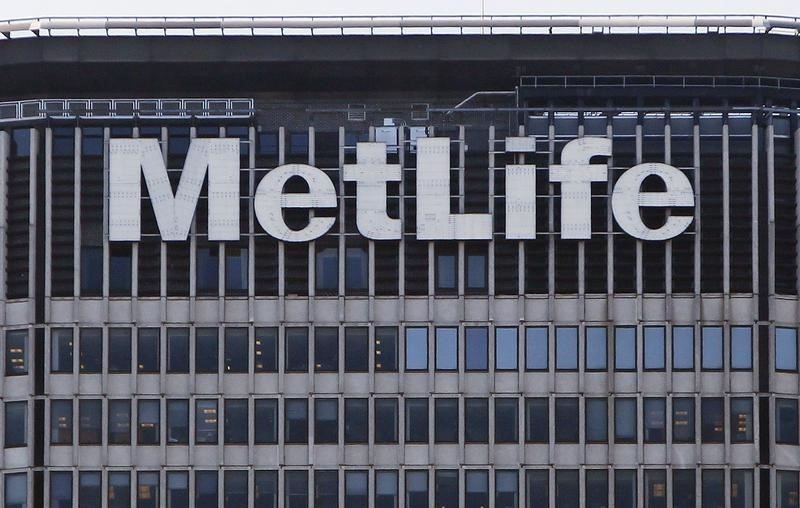By Lisa Lambert
WASHINGTON (Reuters) - Federal regulators' decision to designate insurer MetLife Inc (N:MET) as "too big to fail" was "arbitrary and capricious," the U.S. judge who struck down the determination last month wrote in an opinion that was unsealed on Thursday.
The U.S. government plans to appeal the court decision, a Treasury spokesman said in a statement late on Thursday.
Treasury Secretary Jack Lew said he strongly disagreed with the decision and the government would vigorously defend the work of the Financial Stability Oversight Council (FSOC), made up of several U.S. regulatory agency chiefs, which designated MetLife as a systemically important financial institution in 2014.
The label has been given to four nonbank companies that the government considers would pose a risk to the financial system if they collapsed. MetLife, the largest U.S. life insurer, has said it was considering breaking up its business to shed the designation, which triggers more regulation.
"This decision leaves one of the largest and most highly interconnected financial companies in the world subject to even less oversight than before the financial crisis," Lew said in a statement earlier on Thursday. "I am confident that we will prevail."
MetLife sued the U.S. government last year, saying FSOC used a secretive, flawed process in determining that it could hurt the U.S. financial system if it faces financial distress. On March 30, U.S. District Judge Rosemary Collyer rescinded the designation, but her opinion was put under seal until Thursday.
FSOC said in its designation that the insurer could cause significant damage to the U.S. economy "but never explained how it would result," Collyer wrote.
"That assumption reflected a change in policy, one that was neither acknowledged nor explained in the final determination, and which was therefore arbitrary and capricious," she wrote.
She added that during the designation process, FSOC ignored two of its own definitions of "material financial distress" and "threat to the financial stability of the United States."
"FSOC also focused exclusively on the presumed benefits of its designation and ignored the attendant costs, which is itself unreasonable," Collyer wrote. "FSOC's unacknowledged departure from its guidance and express refusal to consider cost require the court to rescind the final determination."
Authority to designate U.S. nonbank companies as "too big to fail" is part of the Dodd-Frank Wall Street reform law passed after the 2008 financial crisis.
Last week lender GE Capital, a unit of General Electric Co (N:GE), asked to have its designation removed, saying it had shrunk to the point where it would not pose a threat to the financial system if it experiences distress.
Prudential Financial Inc (N:PRU), another insurer, said it was "evaluating what is in the best interests of the company and our stakeholders."
American International Group Inc (N:AIG), which also has the label, received a $182 billion U.S. government bailout to avoid collapse in the thick of the financial crisis. AIG declined to comment on Collyer's decision.
Lew said FSOC takes "a deliberative and data-driven approach, relying on a careful analysis of available information, including intensive engagement with each company" it designates.

"In overturning the conclusions of experienced financial regulators, the court imposed new requirements that Congress never enacted, and contradicted key policy lessons from the financial crisis," he added.